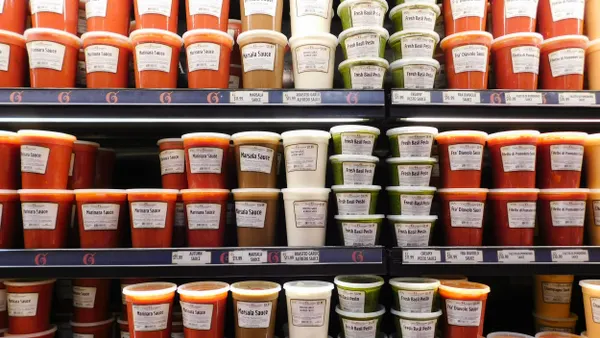Dive Brief:
-
Consumer anxiety over the U.S. presidential election has cost retailers more than $800 million in revenue from online sales this year, according to research conducted between Nov. 1 and 14 by Adobe Digital Insights.
-
The sharpest drop occurred after the election, with total sales growth slowing to just 1.3% compared to the predicted growth of 7.8%.
-
Adobe said the change in spending habits marks the slowest growth rate for U.S. online sales it has identified since it started tracking retail spending.
Dive Insight:
The election has complicated the already fraught retail market, as consumers configure their own assessments of what the prospect of president-elect Donald Trump means for their financial prospects in the short and long term.
The caution introduced by the election comes after one of retail's healthiest months. October retail sales increased 0.8% to reach $465.9 billion, rising 4.3% from the year-ago period to reach a two-year high that beat economists’ forecast, according to the monthly report from the U.S. Department of Commerce.
Consumer reaction is mixed, according to an election report by research agency and consulting firm Conlumino sent to Retail Dive. “Just like the vote itself, the country is divided on the impact a Trump presidency will have on the economy,” according to Conlumino. “The positive and negative sides virtually cancel each other out, although there is a slight bias in favor of those with less favorable views.”
A #GrabYourWallet effort to boycott retailers selling goods from the Trump empire, including daughter Ivanka Trump, could have at least a marginal effect. The boycott, sparked after the release of a tape in which Donald Trump boasted of sexually assaulting women, calls on consumers to use their purchasing power against nearly 50 retailers that carry Trump products, including Amazon, Macy's and Nordstrom.
The effort appears to be gaining steam: Canadian e-commerce retailer Shoes.com announced it will remove Trump products from its site, and voters favoring Hillary Clinton made a concerted effort Thursday to pressure rival online shoe retailer Zappos to follow suit. Those customers reported on a private Facebook page that Zappos agents told them the company was tracking the demands and would make a decision based on an analysis of the calls. The retailer has not responded to a request from Retail Dive to clarify its stance.
Despite the election woes, forecasters are not adjusting expectations for holiday retail sales. The NRF expects a modest 3.6% uptick in sales this season and Moody’s earlier this month similarly predicted a 3% to 4% growth in holiday sales and for e-commerce sales to continue to gain momentum in what Moody's analysts called a "stable" retail environment.
Retailers will likely need to make up for post-election jitters on Black Friday and Cyber Monday, according to a report from EDITED emailed to Retail Dive, which tracked 20,000 U.S. accessory, apparel and footwear brands for its analysis. EDITED found a 40% increase in discounts this year during the last week in October, but sold-out products were down by 60%. In the week after the election, retailers reduced the number of discounts by 64% compared to the week prior, yet sales ticked up and full-price sell-outs rose 17%.














